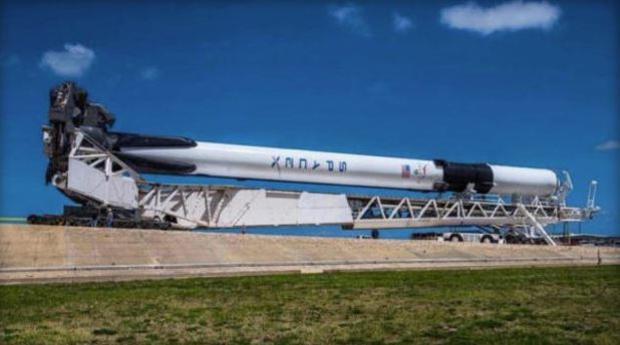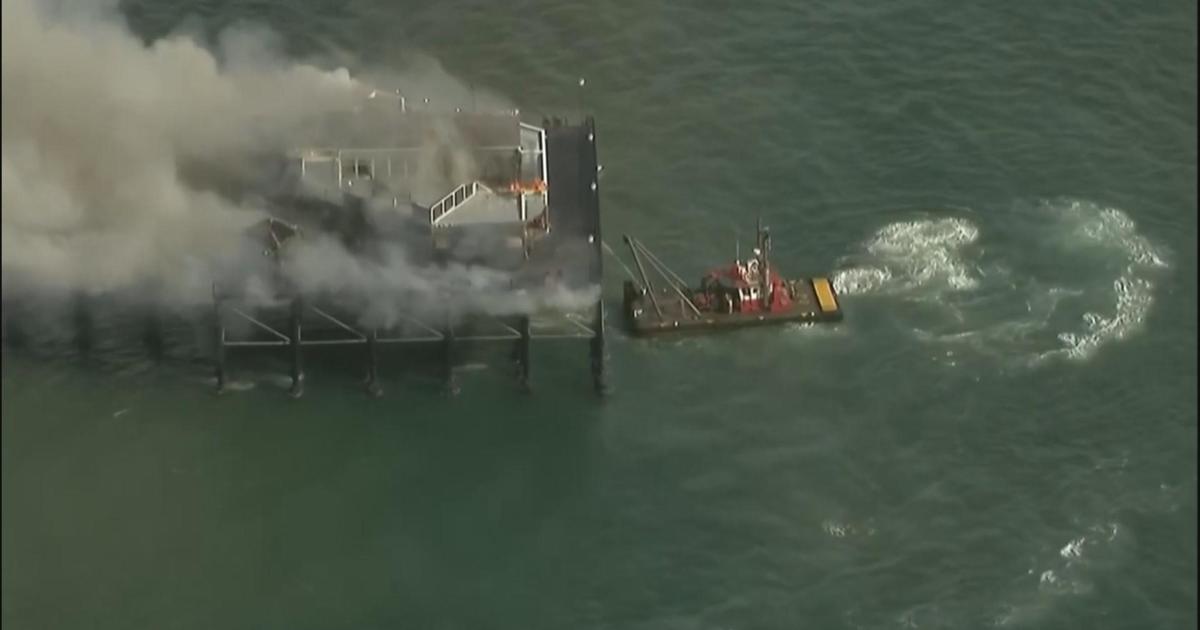SpaceX Falcon9 Rocket Launch Delayed For Unknown Technical Reasons
By William Harwood and CBSLA Staff
CAPE CANAVERAL, Fla. (CBS News/CBSLA) – A SpaceX launch scheduled for Thursday of what it's calling a "final version" of its Falcon 9 rocket to boost Bangladesh's first communications satellite into orbit has been postponed until Friday, officials said.
The rocket is the first "block 5" version of the booster, incorporating numerous design changes to improve performance and safety while allowing the company to refly first stages 10 times or more.
"Falcon 9 Block 5 is designed to be capable of 10 or more flights with very limited refurbishment," SpaceX said on its website.
Following a first stage engine test firing last week, the revamped booster's first flight was initially targeted for liftoff from historic pad 39A at the Kennedy Space Center at 1:12 p.m. Pacific time Thursday, the opening of a two-hour 10-minute window. However, the liftoff was pushed back to 2:47 p.m.
A short time later, SpaceX officials said it had been put on hold for unknown technical reasons. A new launch was scheduled for Friday at 1:14 p.m. local time.
For the past several years, SpaceX has been developing the use of recycled rockets in order to cut launch costs and speed up flights. SpaceX launched its first ever recycled rocket in March of 2017. In June of 2017, it launched and successfully recovered its first-ever recycled capsule.
Last December, it launched its first reused rocket and reused spacecraft in the same mission: using a recycled Dragon capsule and a recycled Falcon 9 rocket.
Along with helping SpaceX streamline launch operations, the block 5 booster eventually will be used to launch astronauts to the International Space Station as well as high-priority national security payloads for the Pentagon. The block 5 upgrades are designed to meet the stringent safety requirements for such missions.
The goal of the flight is to launch the Bangabandhu 1 communications satellite, built by Thales Alenia Space in France to provide Ku-band and C-band television and data services across Bangladesh. Once in orbit and checked out by Thales, the satellite will be operated by the Bangladesh Telecommunication Regulatory Commission.
As has become common for SpaceX, the Falcon 9's first stage will attempt to fly itself back to a landing on an offshore droneship after boosting Bangabandhu 1 out of the thick lower atmosphere. Going into Thursday's launch, SpaceX's landing record stood at 24 successful booster recoveries, 12 on land and 12 on droneships.
The block 5 Falcon 9 features a variety of upgrades to improve reliability and performance and to make it easier for SpaceX to refurbish the first stages for additional flights. SpaceX has re-launched 11 first stage boosters to date, but none have flown more than twice.
"Block 5 is designed for 10 or more flights with very limited refurbishment but should be capable of additional flights with further testing and possible additional refurbishment," SpaceX President Gwynne Shotwell told Aviation Week and Space Technology magazine.
"It is the final substantial upgrade to the Falcon 9 design, although we may make minor upgrades as we continue to strive for rapid reusability and extremely high reliability."
© 2018 CBS Interactive Inc. All Rights Reserved.




